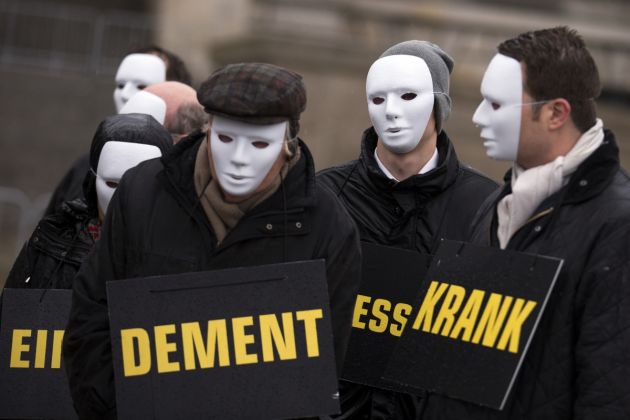UK lawmakers to consider law to legalize assisted dying for terminally ill that carries warning from church leaders

British lawmakers are to consider whether to give terminally ill adults a choice to end their own lives with medical assistance after what proponents say is a shift in public opinion since a similar measure was rejected a decade ago but with the move carrying warnings from church leaders.
Kim Leadbeater, a Member of Parliament from Britain's governing Labour Party who won a ballot giving her the right to introduce a bill on a subject of her choice, has said she will present a bill on assisted dying on Oct. 16, Reuters news agency reported.
Members of Parliament will vote on the issue at the bill's second reading on Nov. 29.
The Roman Catholic Archbishop of Westminster, Cardinal Vincent Nichols, however, has urged people to write to their lawmakers to oppose the legalization of assisted death.
The issue was last voted on in 2015, when lawmakers roundly rejected assisted suicide, with 118 votes for and 330 against.
As the UK's highest-ranking Catholic bishop, Nichols has urged churchgoers to lobby their MPs to oppose proposed changes in the law around assisted dying in England and Wales, warning people: "Be careful what you wish for," The Guardian newspaper reported on Oct 12.
In a letter read out in the churches of his diocese, Cardinal Nichols said the proposed changes risk bringing about "a slow change from a duty to care to a duty to kill" for medical professionals.
Nichols's letter says that in countries where assisted dying has been legalized, the circumstances in which it is permitted have been "widened and widened."
He said changing the law could result in those who are near to death feeling under pressure to end their lives to relieve family members of a "perceived burden of care," to avoid pain, or "for the sake of inheritance."
"The radical change in the law now being proposed risks bringing about for all medical professionals a slow change from a duty to care to a duty to kill," Nichols noted.
DIGNTIY IN DYING CHIEF
Sarah Wootton, the chief executive of Dignity in Dying, had, however, said earlier in year, according to the Guardian: "Assisted dying is a movement whose time has come...Dying people will be holding him to account; they simply do not have time to wait.
"As reform grows closer in the Isle of Man, Jersey and Scotland, we are on the brink of historic change across the British Isles."
Assisted suicide has become a significant issue in the U.K. after well-known journalist and television presenter Esther Rantzen, who has terminal cancer, called for a vote on assisted suicide earlier this year, Angelus News, a Catholic website reported on Oct.11.
The UK Prime Minister Keir Starmer, who personally supports a change in the law, promised Rantzen that he would give MPs a free vote on the issue if he became prime minister, which happened when the Labour Party won the national general election on July 4.
However, a Catholic member of the upper chamber of Parliament, Lord David Alton, like Cardinal Nichols, warned Starmer that the "floodgates" will open, and vulnerable people will be at risk if the law is passed in the same way as other jurisdictions.
"Before the U.K. Parliament opens the euthanasia floodgates," he said, "it should first dispassionately consider outcomes in jurisdictions that have ditched protection of the vulnerable with ineffective safeguards. MPs should put their energy into better palliative care."
Alton was referring to the Netherlands, where euthanasia has been legal since 2002. Twenty-four confirmed cases of euthanasia have taken place where the individuals concerned were diagnosed with autism or having a learning disability, reported Angelus News.
In Canada, euthanasia and assisted suicide were legalized in 2016 on the condition that the death of applicants should be "reasonably foreseeable."
In 2021, this condition was repealed. With a provision to exclude those with mental illness due to expire earlier this year, in February, lawmakers delayed expanding euthanasia and assisted suicide on the grounds of mental health alone to March 2027.
